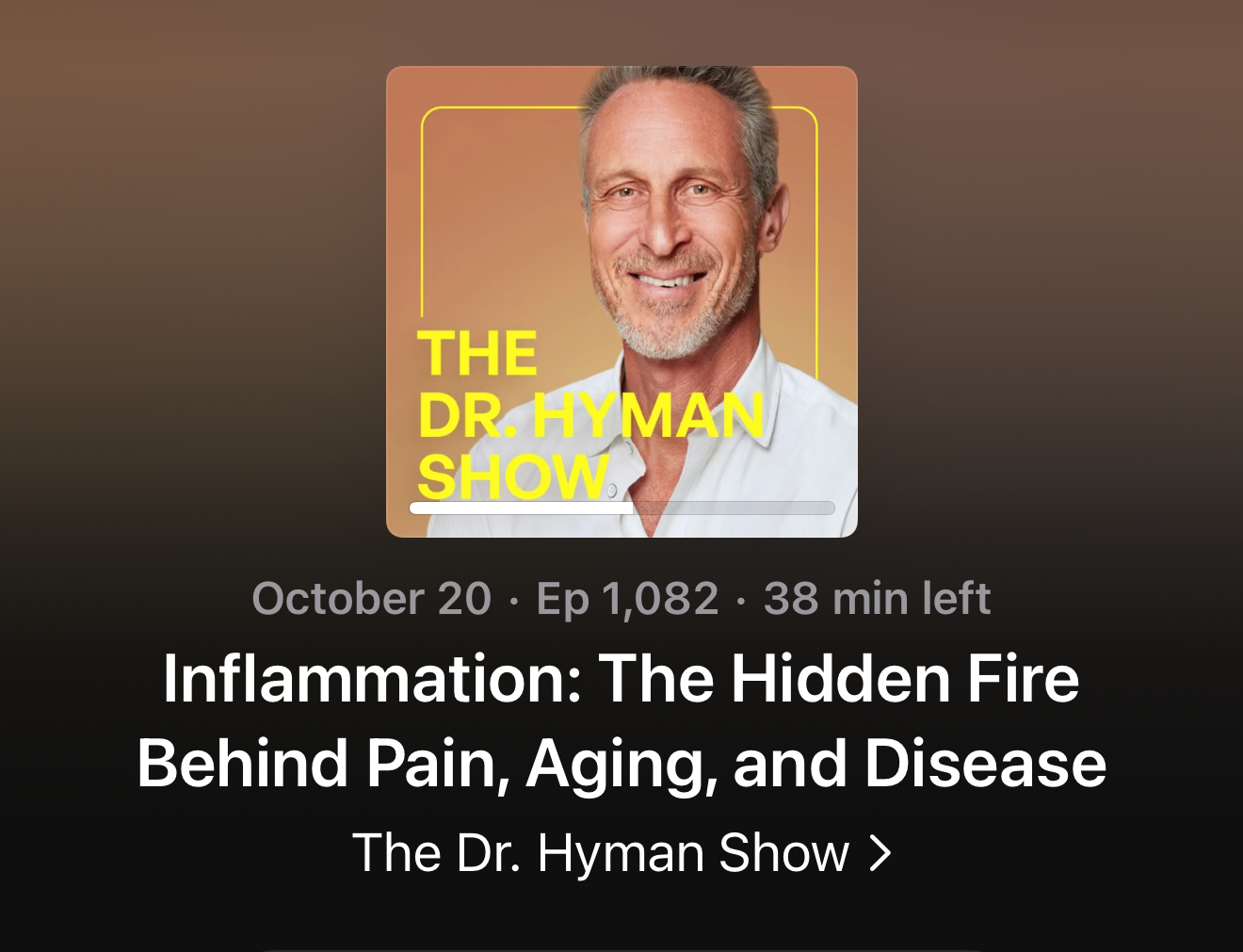
Understanding Inflammation: What It Is, Why It Happens, and How to Think About It
Understanding Inflammation: What It Is, Why It Happens, and How to Think About It
Inspired by Dr. Mark Hyman’s discussion on The Doctor’s Farmacy
Inflammation is one of the most common concerns people over 40 talk about — joint pain, arthritis, swelling, stiffness, autoimmune symptoms, low energy, and simply feeling “inflamed” without knowing why.
If you’ve ever been told to “eat an anti-inflammatory diet” but had no idea what that actually means, you’re not alone. The mainstream advice is vague, confusing, and often incomplete.
Recently, I listened to an episode of The Doctor’s Farmacy by Dr. Mark Hyman — a respected functional and holistic doctor who focuses on addressing root causes of chronic issues instead of masking symptoms. His explanation of inflammation is one of the clearest and most practical approaches I’ve heard.
Below is a summary of the most helpful insights so far, along with the link to the podcast so you can listen and form your own understanding.
What Is Inflammation?
Inflammation is the body’s natural defense system. It helps you heal, recover, and fight off infections.
But when inflammation becomes chronic, it can contribute to:
arthritis
joint pain
autoimmune symptoms
stiffness and swelling
fatigue
metabolic problems
digestive issues
brain fog
The issue isn’t inflammation itself — it’s the constant, ongoing triggers caused by daily lifestyle factors.
Key Insights From Dr. Mark Hyman
1. Inflammation Is Usually a Symptom of Something Deeper
Dr. Hyman explains that chronic inflammation often stems from:
poor sleep
chronic stress
processed foods
blood sugar spikes
lack of movement
gut imbalances
environmental triggers
Once you understand this, inflammation starts to make more sense.
2. Processed Foods Are a Major Contributor
Ultra-processed foods disrupt the metabolism, immune system, and gut — all of which can trigger inflammation.
Common culprits include:
sugary beverages
packaged snacks
fried foods
fast food
refined carbs
processed meats
Simply reducing these can make an enormous difference.
3. Whole Foods Help Calm the Body
You don’t need an extreme “anti-inflammatory diet.”
Just real, whole foods like:
vegetables
lean proteins
berries
nuts and seeds
omega-3 rich foods
healthy fats
herbs & spices like ginger and turmeric
Your body responds well to food that supports healing.
4. Movement Helps Lower Inflammation
Daily walking, light cardio, and strength training all help move inflammation out of the body by improving circulation, metabolic health, and joint function.
Consistency is more important than intensity.
5. Sleep Is One of the Most Powerful Tools
Poor sleep increases inflammation dramatically.
Better sleep supports hormone balance, immune function, and recovery — all of which help reduce inflammation naturally.
Why This Matters for You
Inflammation can feel confusing because people get advice without explanation. But once you understand the basics, you can make more confident, intentional choices that support long-term health.
Small habits matter.
Real food matters.
Daily movement matters.
Sleep matters.
Stress management matters.
To explore the full conversation for yourself, here’s the podcast episode:
Podcast episode:
https://podcasts.apple.com/us/podcast/the-dr-hyman-show/id1382804627?i=1000732631756
Want Help Staying Consistent?
If you're working on reducing inflammation through lifestyle, strength training, or better nutrition, my programs are designed to keep things simple, realistic, and sustainable.
You don’t have to figure it out alone. One step at a time creates momentum.
